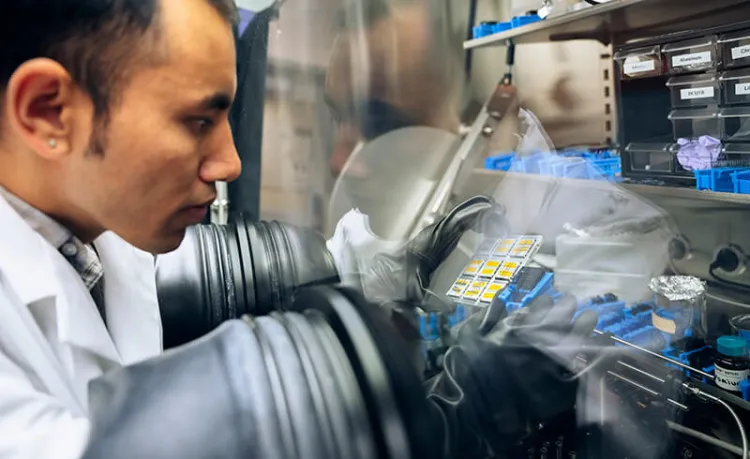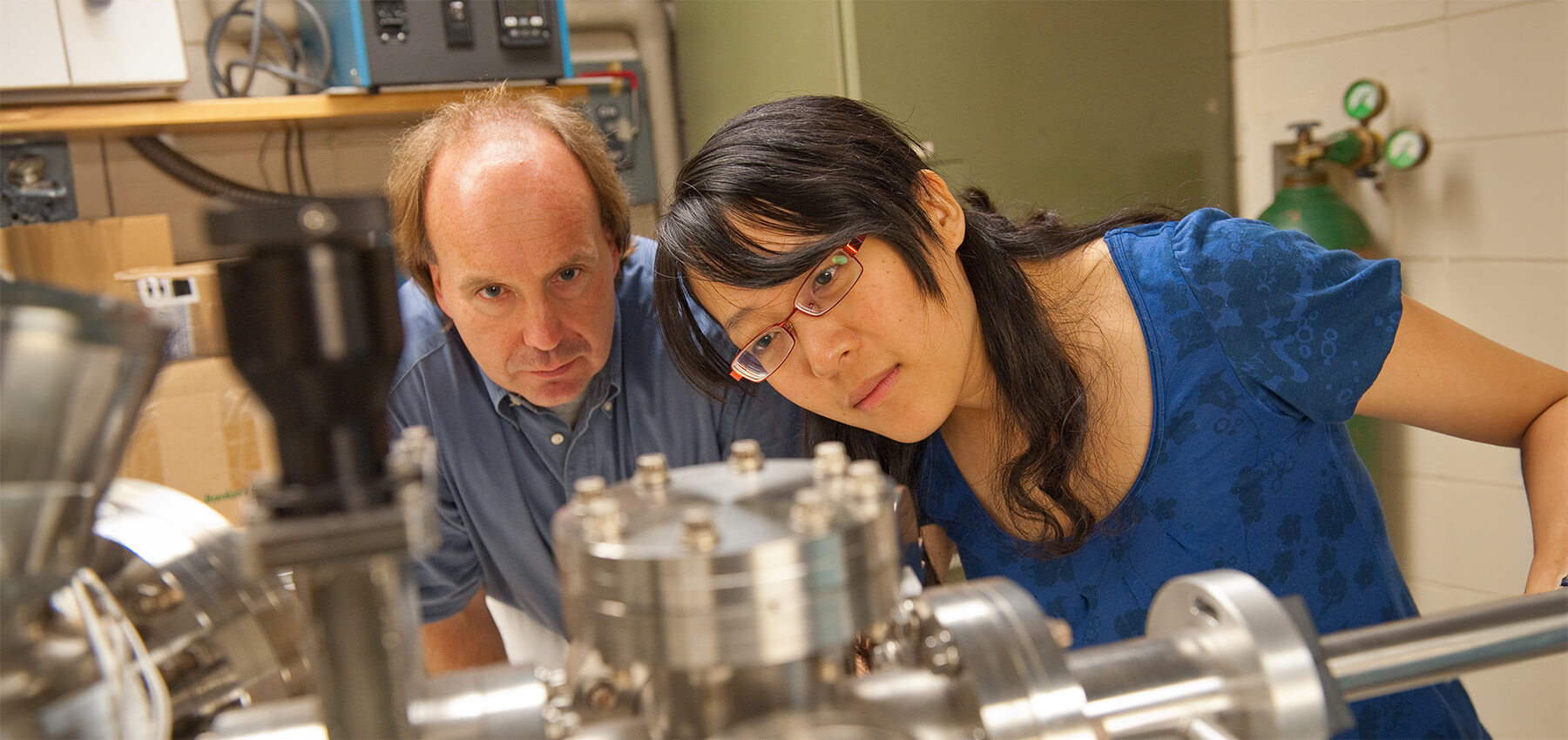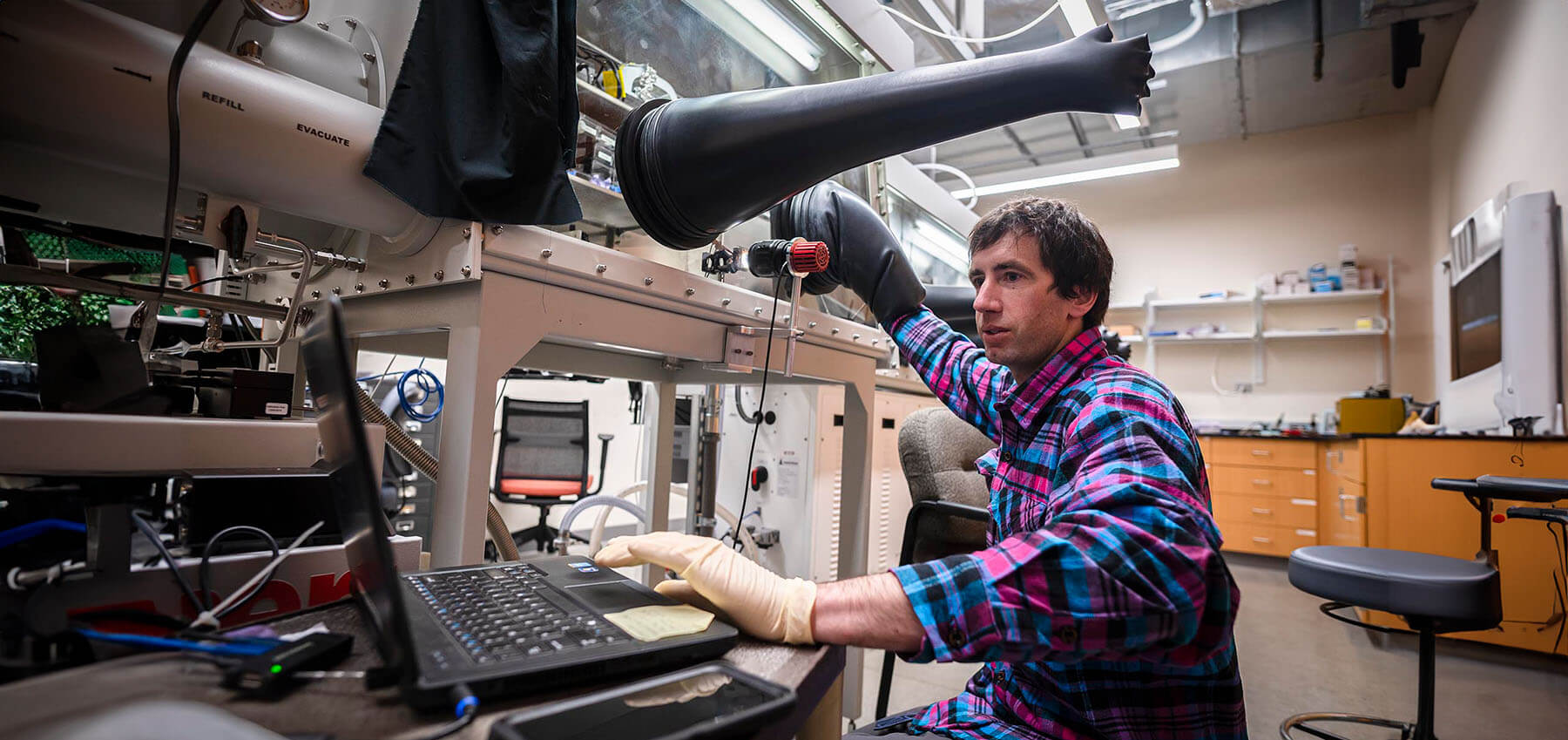The Department of Physics at UVM offers both Ph.D. and M.S. degrees in Physics. We also offer accelerated master’s programs (AMPs) (link).
PhD students in physics are supported through Graduate Teaching Assistantship (GTA) or Graduate Research Assistantships (GRA), including a stipend and tuition scholarship. Beginning graduate students have the opportunity to teach laboratory classes in the introductory physics courses. In later years, these students may continue to teach laboratory classes or recitations, but often are increasingly supported as GTAs through research grants as they focus on their thesis research.
Graduate Degrees in Physics

The department’s research focuses in two major areas: Condensed Matter Physics and Biological Physics.
Theoretical and Experimental Condensed Matter Physics
(Professors: Dennis Clougherty, Randall Headrick, Valeri Kotov, Matthew White, Alexander Kozen, Matthew Dawber)
- Solving cutting-edge problems in dynamical quantum systems, 2D materials (i.e. graphene), and spintronics
- Materials physics & surface science for energy applications, next-generation computing, and photonics
Biological Physics
(Professors: Wen Ma, Haicen Yue)
- Development of theoretical and computational methods to study biological processes across different spatial scales.
- Structure and dynamics of biological macromolecules, design principles of molecular motors, and protein-drug interactions.
- Soft matter studies on biological tissues, tumors, and bio-inspired materials.
For more information, please visit our Faculty pages.
Graduate Degrees in Physics
Degree Information
Ph.D. in Physics
The Department of Physics offers research opportunities in theoretical and experimental condensed matter physics, astronomy and astrophysics, and soft condensed matter physics and biophysics. For the PhD, 75 credits are required including six core graduate courses: PHYS 5125 Mathematical Physics, PHYS 5200 Advanced Dynamics, PHYS 5300 Electromagnetic Theory, PHYS 5500 Quantum Mechanics II, PHYS 5400 Statistical Mechanics. Read details pertaining to the program requirements (PDF).
M.S. in Physics
This degree requires thirty credit hours of course work course work and thesis research for graduation. At least six of these, but no more than 15, must be master's thesis research credits. At least nine credit hours must be taken from 300-level courses, the remaining courses can be taken at the 200-level. At least 21 credit hours must be taken at UVM in order to satisfy residency requirements. At the start of their second semester at UVM, students are expected to sit for the written part of the Comprehensive Exam which covers classical mechanics, quantum mechanics, electricity and magnetism, statistical thermal physics, modern physics, and experimental physics. Students are given two opportunities to pass the comprehensive exam. In addition to the written portion, there is also an oral portion that consists of a Master's thesis proposal given after the start of a thesis research project.
Program Outcomes
Upon completion of the MS degree, students will be able to:
- Apply the laws of physics in classical mechanics, quantum mechanics, electrodynamics, and statistical mechanics at a level commensurate with current standards in physics.
- Demonstrate mastery of advanced physics within their chosen subfield (e.g. astronomy, condensed matter, biological, and engineering physics).
- Demonstrate fluency in comprehension of the primary research literature in their chosen subfield
- Conduct primary research literature searches in their chosen subfield.
- Complete an original, creative project that demonstrably advances human knowledge within their subfield.
Accelerated Masters Program
Students must apply for the Accelerated Master’s Entry Pathway (AMP) during Spring semester of their Junior year. Students interested in the AMP can request information in writing from the Physics Department. Recommendation for admission will be based upon the student's prior academic record with particular attention paid to performance in upper-division 3000- or 4000-level physics courses. Following formal Graduate College admission to the Accelerated Master's Program, up to 9 credits of approved graduate course work may be taken that may be counted toward both the undergraduate and graduate degree requirements. The graduate credits taken prior to completion of the bachelor's must be in graded coursework only; independent study, research credits, internships and practica will not count towards the master's degree. In addition, the courses taken must be approved by the student's graduate advisor.
Sample Work and Exams
Thesis and Dissertations
Review thesis and dissertations from past UVM graduate students in Physics on the Howe Library website.
Sample Comprehensive Exams
If you are a prospective graduate student interested in seeing what current graduate students can accomplish, or if you're a current graduate student studying, here are some links to previous Comp Exams:


